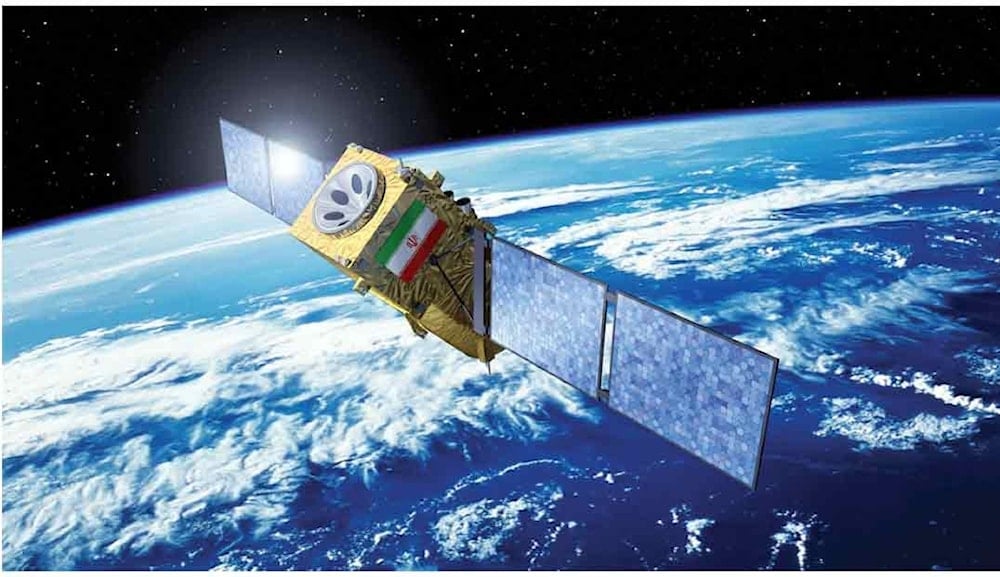Iran plans 2026 launch for 'Shaheed Soleimani' satellite constellation
Iran is advancing its space program with new satellite projects, university collaborations, and upcoming launches, including the 'Shaheed Soleimani' constellation aimed at enhancing IoT capabilities.
-

Illustration sourced from MEHR news agency.
Hassan Salarieh, the head of the Iranian Space Organization, outlined the latest developments in the country's space initiatives during an interview with Tasnim News Agency. His remarks covered ongoing satellite projects, upcoming launches, and the role of academic institutions in advancing space technologies.
Salarieh revealed that Iran is working on the 'Shaheed Soleimani' satellite constellation, a project consisting of 20 satellites aimed at improving the Internet of Things (IoT). The constellation is currently under construction, with plans for a test launch in early 2025, followed by the main launch in March 2026.
Additionally, he provided updates on other projects, noting that satellites in the 'Research' series—Research 1, 2, 3, and 4—are either in the tendering phase or have already entered production. The 'Pars 2' and 'Pars 3' satellites, along with two radar satellites, are also progressing. Upcoming launches include 'Nahid 2' and 'Nahid 3', both of which are ready for deployment.
Strengthening Iran's Operational Satellite Fleet
"Several test launches are conducted for new satellites to address any in-orbit issues," Salarieh explained, adding that an upgraded version of the 'Pars 1' satellite will be unveiled during the Fajr decade, held annually from February 1 to 11 in commemoration of the 1979 Revolution.
Discussing operational satellites, Salarieh acknowledged that some have reached the end of their service life. However, he highlighted the 'Mehda' satellite, launched in February 2023, as an active telecommunications platform currently functioning in orbit.
Salarieh also stressed the contributions of Iranian universities to the space sector. "Many satellites are directly built by universities, playing a crucial role in training specialists and developing core space technologies," he stated. Knowledge-based companies, often spun off from academic institutions, have also become key collaborators with the Space Organization.
Read more: Iran achieves milestone in space tech with Saman-1 and Fakhr-1 launch
In addition, Salarieh mentioned agreements with universities and the Vice-Presidency for Science and Technology to drive innovation in space-related fields. He highlighted the importance of university-affiliated companies in developing technologies that will shape the future of Iran's space program.
These efforts, Salarieh suggested, reflect a strategic approach to strengthening Iran's capabilities in satellite production and advancing its presence in the global space industry.

 3 Min Read
3 Min Read








